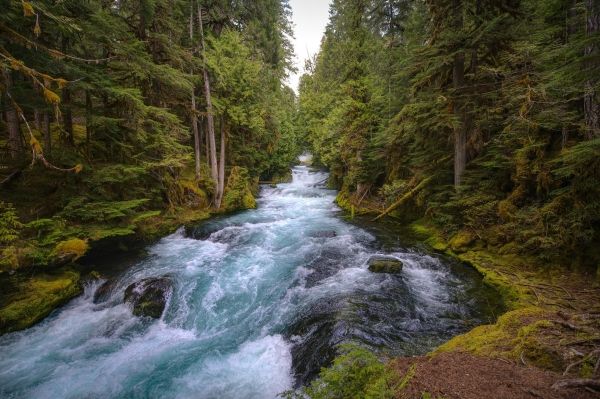The extent to which rivers transport burned carbon to oceans - where it can be stored for tens of millennia - is revealed in new research led by the University of East Anglia (UEA).
The study, published today in Nature Communications, calculates how much burned carbon is being flushed out by rivers and locked up in the oceans.
Oceans store a surprising amount of carbon from burned vegetation, for example as a result of wildfires and managed burning. The research team describe it as a natural – if unexpected – quirk of the Earth system.
The international interdisciplinary team, including collaborators from the Universities of Exeter, Swansea, Zurich, Oldenburg and Florida International, studied the amount of dissolved carbon flowing through 78 rivers on every continent except Antarctica.
Lead researcher Dr Matthew Jones, of the Tyndall Centre for Climate Change Research at UEA, said: “Fires leave behind carbon-rich materials, like charcoal and ash, which break down very slowly in soils. We care about this burned carbon because it is essentially ‘locked out’ of the atmosphere for the distant future – it breaks down to greenhouse gases extremely slowly in comparison to most unburned carbon.
Read more at University Of East Anglia
Image by Hardebeck Media from Pixabay


